Cleaning and Maintenance
-

People spend an average of 90 percent of their time indoors. Studies conducted by the Environmental Protection Agency (EPA) show levels of several common organic pollutants to be two to five times higher inside homes than outside. Many of these pollutants come from the volatile organic compounds (VOCs) released from household cleaning products. Indoor pollutants can be reduced by limiting the number of chemicals used indoors. By following three basic guidelines you can improve your indoor environment, save money, and help conserve natural resources.
Pamela R. Turner
|
-

Al igual que su salud personal, la salud de su hogar se deteriorará sin un cuidado y mantenimiento regular. Mantener un ambiente interior saludable ayuda a aumentar su calidad de vida y la vida de su casa. Con unos sencillos pasos puede mantener su hogar saludable. Utilice esta lista de verificación como guía para sus evaluaciones periódicas de mantenimiento del hogar en primavera y otoño. Tenga en cuenta que las frecuencias de mantenimiento pueden variar según el clima local y las recomendaciones de fabricación de electrodomésticos.
Ines Beltran and Pamela R. Turner
|
-
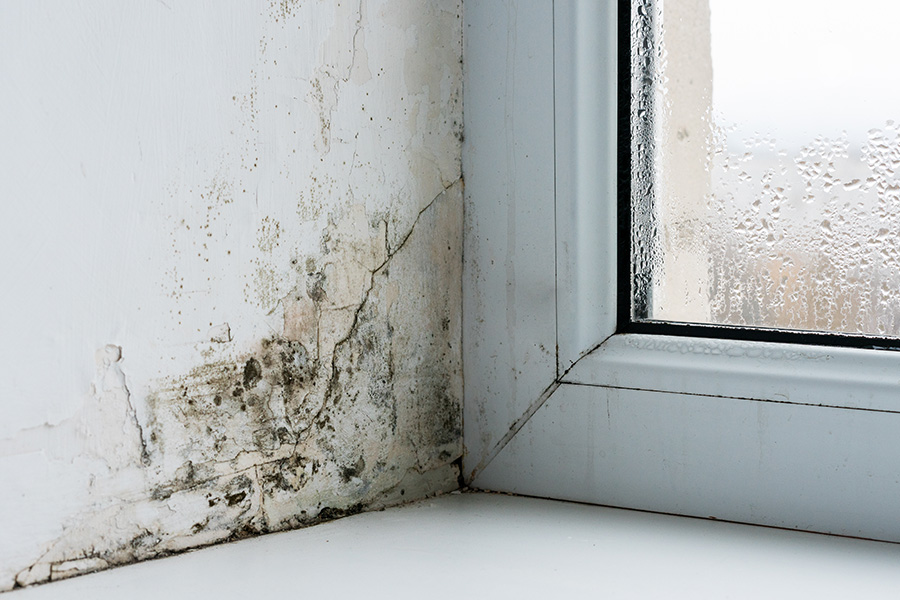
Las esporas del moho solo necesitan un ambiente favorable, alimentos (madera, papel, alfombra, etc.) y humedad para crecer. Si no se detecta o se trata, el moho puede provocar efectos negativos para la salud, como reacciones alérgicas, infecciones respiratorias y más. Use esta lista de verificación como una guía básica para inspeccionar su hogar en busca de señales de exceso de humedad y crecimiento de moho.
PRECAUCIÓN: Al investigar posibles problemas con el moho, puede alterar las áreas contaminadas al hacerlo, extenderá la contaminación al resto de la casa. Esto representa un grave riesgo para la salud de las personas con sistemas inmunes débiles, asma o alergias; por lo tanto, antes de realizar una investigación exhaustiva del moho, es mejor consultar a su médico o contratar a un profesional. Si decide realizar esta búsqueda por sí mismo, utilice el equipo de seguridad adecuado según lo recomendado por la Agencia de Protección del Medio Ambiente (EPA por sus siglas en inglés; www.epa.gov/mold).
Ines Beltran and Pamela R. Turner
|
-
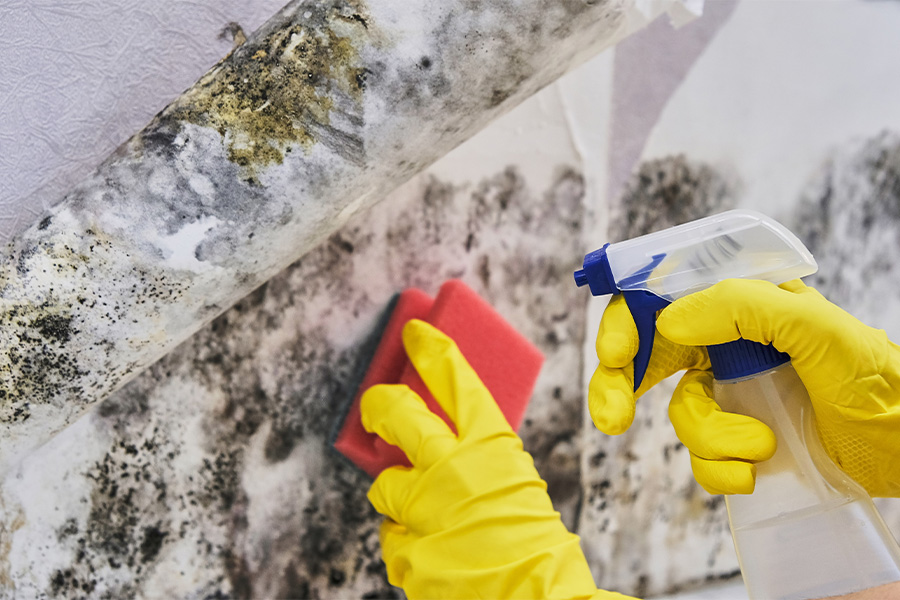
El moho crece a partir de las esporas, que se encuentran naturalmente en el aire y no se pueden ver a simple vista. Las esporas de moho actúan como semillas, haciendo que el moho crezca si las condiciones son adecuadas. El moho suele ser fácil de detectar. Aunque es posible utilizar pruebas para determinar la presencia de moho, por lo general no es necesario o recomendado hacerlo, usted puede detectar el moho rápidamente usando su vista y olfato.
Tenga en cuenta que las primeras señales de moho pueden ser el desarrollo de síntomas similares a los de una alergia. Si detecta un exceso de humedad o un olor a humedad, pero no ve moho, asegúrese de revisar detrás de los gabinetes y el papel tapiz, y debajo de las alfombras. Estos son escondites comunes para el moho. Realice una inspección completa de su hogar utilizando la Lista de Verificación de Humedad y Moho de UGA.
La clave para controlar el moho es eliminar la fuente del problema de la humedad.
(Translation provided by Ines Beltran)
Pamela R. Turner
|
-
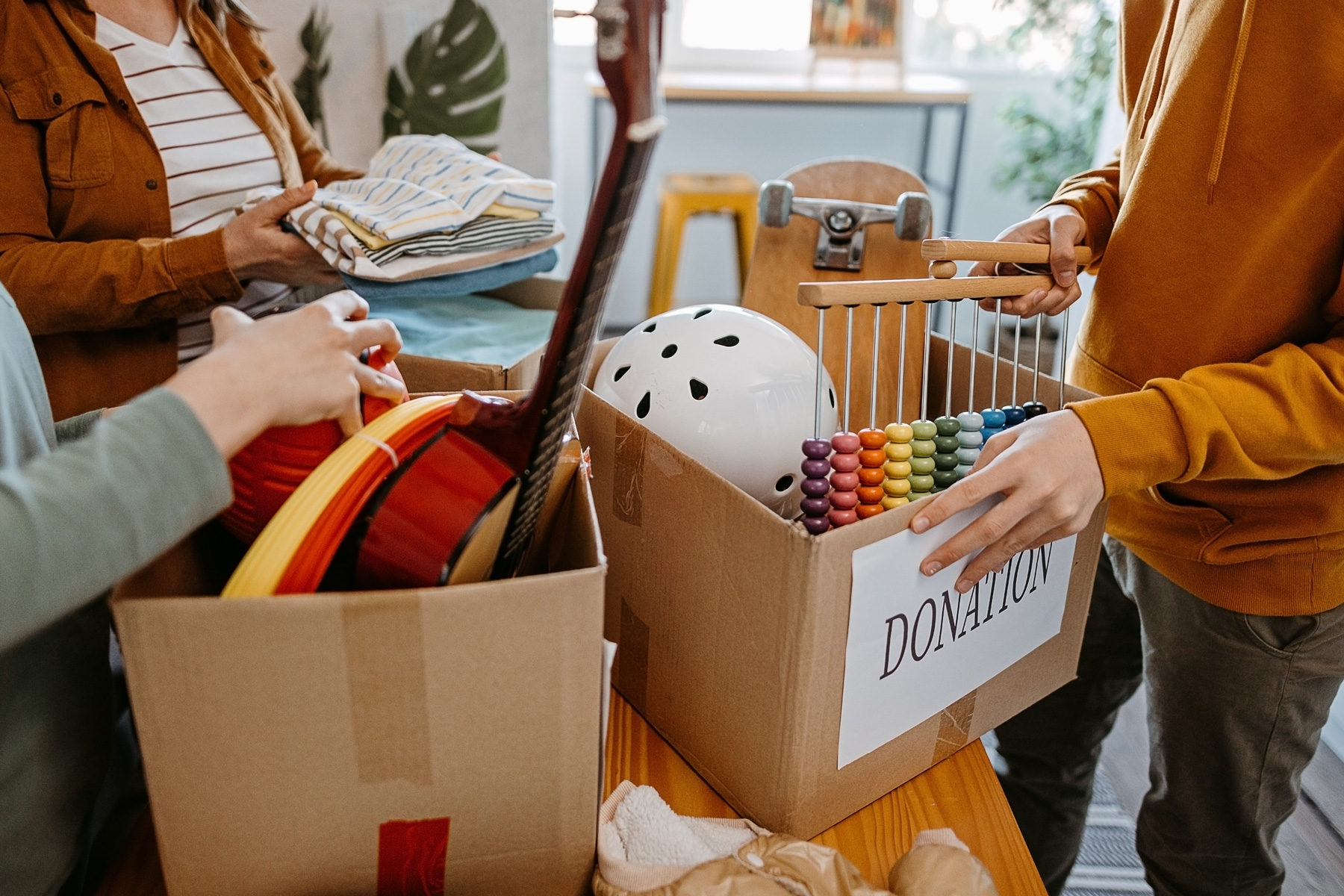
C 1067
Household Clutter Control
Clutter is a collection of things lying around in an untidy mess, usually because we don’t have a designated place for it. Household clutter has a big impact on your health and quality of life. This publication will help you asses if you have too much household clutter and then recommends ways to take charge, clear the clutter, and maintain a clutter-free home.
Pamela R. Turner, Charles Okpala, Von Baker, Laura T. Smith, Sylvia Davis, Olivia Handley, Michelle Quick, Janette Burkes, Kimberly Howell, and Diane W Bales
|
-

There may be insect fragments, lead dust, pesticides, pollen, dust mites, animal dander, hair, human skin flakes, fungal spores, or cigarette ash in household dust. Around 30% to 40% of the contaminants inside your home are brought in from outdoors. By taking a few simple steps described in this resource, you can improve the health of your home and reduce the time spent cleaning.
Pamela R. Turner, Laura T. Smith, and Stephanie Benton
|
-
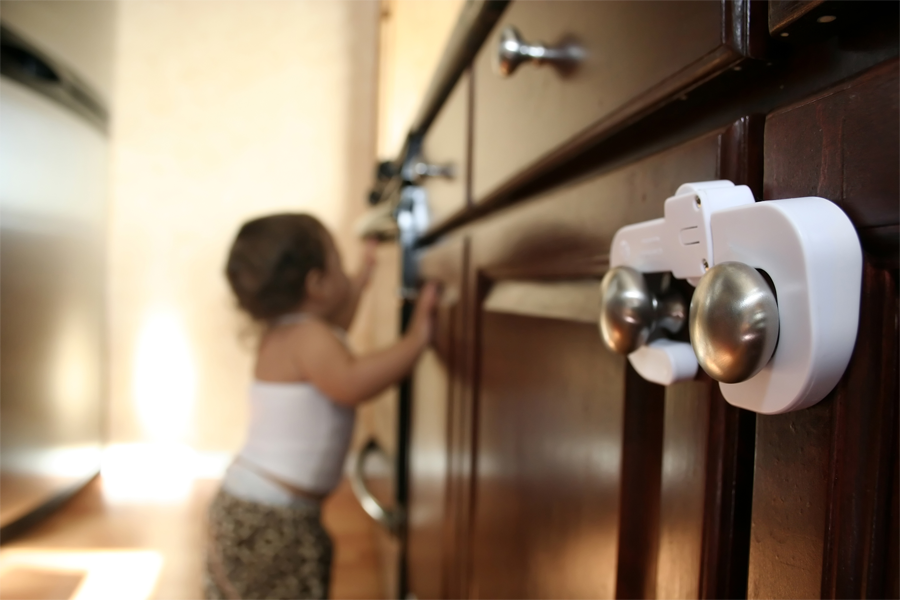
Nearly 2.3 million children are accidentally injured every year and more than 2,500 are killed, according to the U.S. Centers for Disease Control and Prevention. Since one of the biggest threats to children is an injury occurring at home, it is important to take preventative steps to childproof your home. While this may seem like a daunting task at first, this checklist includes basic tips, broken down by room, to help make your home safer for the whole family.
Pamela R. Turner, Teresa Adkins, Janette Burkes, Brittany Harrison, Victoria Presnal, Michelle Quick, Laura T. Smith, and Diane W Bales
|
-

Our homes are filled with potentially hazardous household products we use for cleaning, gardening, auto maintenance and other activities around the house. These products may contain ingredients that can be hazardous when not used, stored, and disposed of properly. You can make your home safer and healthier by reducing exposure to hazards in your home by following these tips.
Pamela R. Turner, Olivia Handley, Michelle Quick, Keishon Thomas, Nancy Adams, and Susan L Moore
|
-
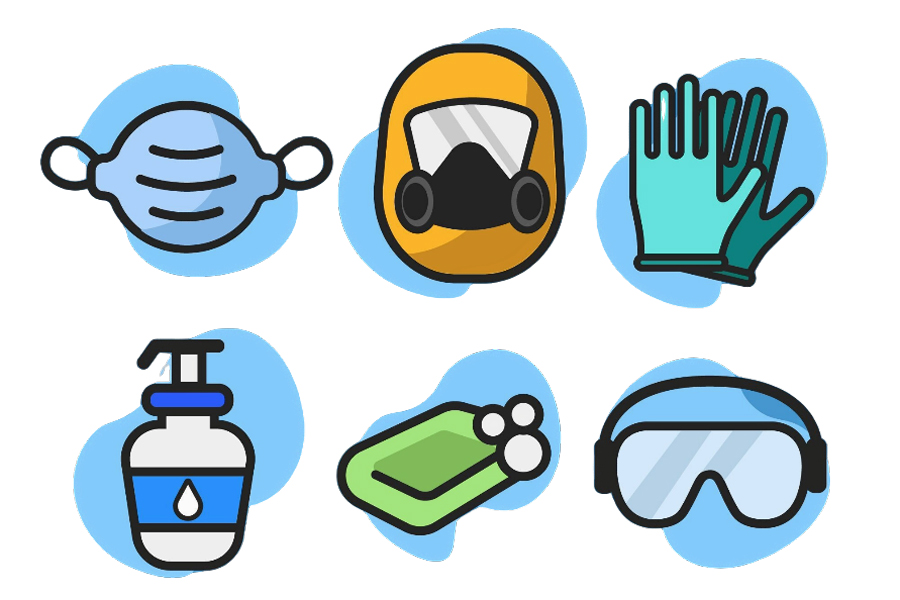
If your home is affected by a flood or other water-related disaster, fabric and clothing can become contaminated by floodwater, airborne mildew, or sanitation system failure. This guide provides steps to safely clean salvageable clothing and fabric items in order to save money, reduce waste, and keep people safe.
Elizabeth Anne Weigle
|